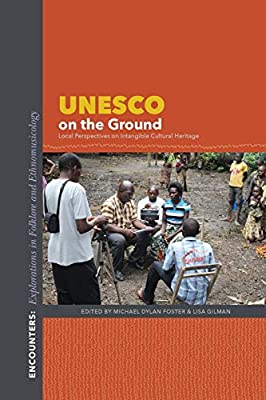This project was funded in part by a CSWS grant.
This book grew out of preliminary research Lisa Gilman did during the summer of 2010 partly funded by a CSWS faculty research grant.
“In recent years, UNESCO and intangible cultural heritage (ICH) have become key terms for the analysis of expressive culture, with folklorists and anthropologists playing increasingly significant roles in the theorization, creation and implementation of global cultural policy. While UNESCO meetings are generally held in cities such as Paris and New York, their decisions affect people in communities around the globe, where they can have unforeseen ramifications for national and regional politics, economics, and ethnic concerns. The objective of this book project is to listen to the voices of these people; by presenting their experiences and ideas, we explore ICH policy from an on-theground perspective that provides insight into the local effects of global decisions. The monograph consists of an introduction, case studies from India, South Korea, Malawi, Japan, Macedonia and China, followed by three critical commentaries that place the cases in comparative and broader theoretical perspectives.”
Indiana University Press, 188 pages


